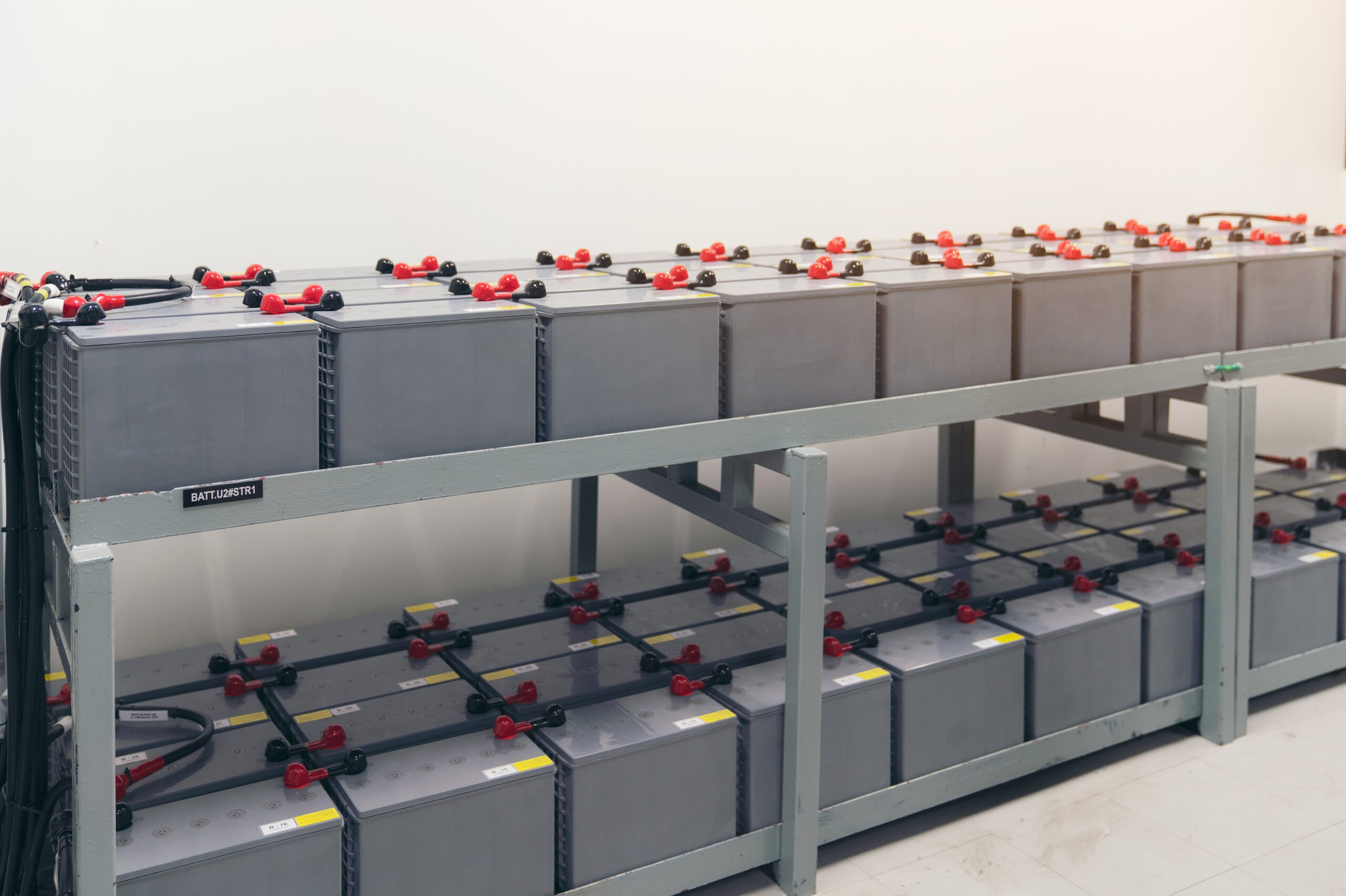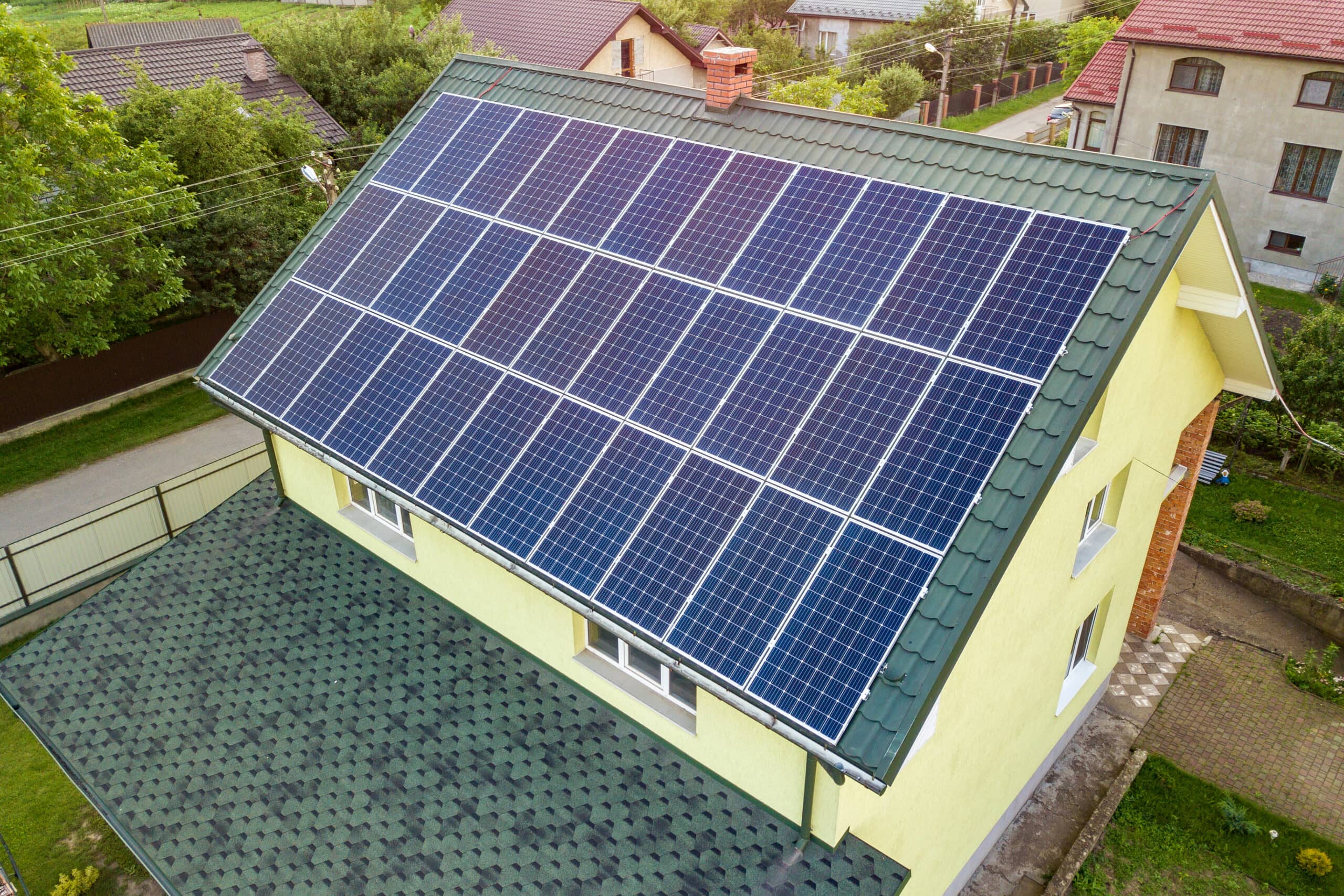Did you know solar battery storage systems are gaining popularity for residential use? With the increasing interest in sustainable energy solutions, more homeowners are looking to harness the sun’s power and reduce their reliance on the grid. However, choosing the right battery storage solution is crucial to optimize your home energy management. In this article, we’ll explore the benefits of solar battery storage and provide practical tips to help you make an informed decision. Let’s dive in!
Understanding the Evolving Landscape of Solar Battery Technology
Over the years, remarkable advancements in solar battery technology have revolutionized residential energy storage. These advancements have significantly improved solar battery systems’ efficiency, reliability, and cost-effectiveness.
One key area of progress is in the development of lithium-ion batteries. These batteries have become increasingly popular due to their higher energy density, longer lifespan, and faster charging capabilities than traditional lead-acid batteries. Lithium-ion batteries allow homeowners to store more energy and rely on their solar power system even during periods of low sunlight.
Exciting emerging technologies, including flow batteries and solid-state batteries, are also in the market. Flow batteries, for example, offer the advantage of scalability, allowing homeowners to expand their energy storage capacity as needed. Solid-state batteries, on the other hand, provide enhanced safety features and improved overall performance.
By staying informed about the different types of solar batteries available, you’ll be well-equipped to choose the right solution for your energy needs and budget. The evolving landscape of solar battery technology holds great promise for a sustainable and energy-efficient future.
Comparing Lithium-ion Batteries: The Cornerstone of Residential Energy Storage
Lithium-ion batteries have become the go-to choice for home energy storage due to their numerous benefits and suitability for residential applications. One key advantage is their high energy density, which means they can store much energy in a compact size. This makes them ideal for homes where space is limited.
Another essential factor to consider is the lifespan of lithium-ion batteries. On average, these batteries can last anywhere from 5 to 10 years, depending on usage and maintenance. This longevity ensures that homeowners can enjoy the benefits of their solar energy system for an extended period.
Cost-effectiveness is also a crucial consideration. Lithium-ion batteries may have a higher upfront cost than other battery technologies. However, their longer lifespan and higher efficiency make them a more cost-effective choice in the long run. Additionally, as the demand for lithium-ion batteries increases, we can expect prices to continue to decrease, making them even more accessible for homeowners.
When comparing lithium-ion batteries, consider energy density, lifespan, and cost-effectiveness to determine which option best suits your home energy storage needs. By weighing these factors, you can make an informed decision and maximize the benefits of your solar power system.
Why Lead Acid Batteries Are Falling Behind in Residential Energy Storage
While once a popular choice for energy storage, lead-acid batteries have several limitations and disadvantages that make them less favorable than newer technologies. One major drawback is their maintenance requirements.
While some types of lead-acid batteries, like flooded lead-acid batteries, do require regular maintenance, checking and topping up electrolyte levels, which can be time-consuming and inconvenient for homeowners sealed lead-acid batteries (such as AGM and Gel types) are maintenance-free.
Another significant factor is the limited lifespan of lead-acid batteries. On average, they have a shorter lifespan than newer alternatives like lithium-ion batteries. This means homeowners may need to replace them more frequently, resulting in additional costs and hassle.
Furthermore, lead acid batteries have lower efficiency compared to newer battery technologies. They are less able to store and release energy efficiently, which can lead to energy loss and reduced overall system performance. This lower efficiency can impact the effectiveness and reliability of a home’s energy storage system.
Considering these limitations and disadvantages, it’s clear why lead acid batteries are falling behind in residential energy storage. Newer alternatives, such as lithium-ion batteries, offer longer lifespans, higher efficiency, and require less maintenance, making them a more attractive choice for homeowners looking to maximize the benefits of their solar power system.
Exploring the Potential of Flow Batteries: Emerging Solutions for Home Energy Management
Flow batteries are gaining attention as scalable and long-lasting energy storage solutions for residential use. These batteries store energy in liquid electrolytes, which flow through a system of cells. This unique design offers several advantages for homeowners.
One key advantage of flow batteries is their flexibility. Unlike other battery technologies, flow batteries can be easily scaled up or down to meet changing energy storage needs. This flexibility allows homeowners to adjust their energy storage capacity as their energy demands evolve over time.
Another significant benefit is the deep cycling capabilities of flow batteries. Deep cycling refers to the ability to repeatedly discharge the battery to a low state of charge without causing significant damage. Flow batteries excel in this aspect, making them suitable for applications that require frequent and deep cycling, such as storing energy from renewable sources like solar power.
Flow batteries also have the potential for grid integration. With the ability to charge and discharge energy rapidly, flow batteries can help stabilize the grid by providing power during peak demand periods or absorbing excess energy during low demand periods. This grid integration potential can provide a more reliable and efficient energy system.
As flow battery technology advances, we can anticipate efficiency, cost-effectiveness, and overall performance enhancements. These emerging solutions are promising for homeowners looking for reliable, long-lasting, and scalable energy storage options for residential energy management. Despite these advancements, flow batteries currently face significant challenges in terms of cost and complexity, making widespread adoption in residential settings uncommon.
Key Considerations for Choosing the Right Solar Battery Storage Solution
When choosing a solar battery storage solution for your home, there are several key considerations to remember.
Let’s take a closer look at some important factors:
1. Battery Capacity: Assess your energy needs and choose a battery with sufficient capacity to meet your requirements. Consider factors such as your average daily energy consumption and any future expansion plans.
2. Compatibility: Ensure that your selected solar battery storage system is compatible with your existing solar setup. Check if it integrates seamlessly with your solar panels, inverter, and other components.
3. Warranty: Look for a solar battery with a reliable warranty. A more extended warranty period provides peace of mind and can indicate the manufacturer’s confidence in the product’s performance and durability.
4. Installation Requirements: Consider the installation requirements of the solar battery storage system. Determine if it can be easily installed in your home, whether it requires professional assistance, and if any additional equipment or modifications are necessary.
5. Efficiency: Evaluate the efficiency of the battery system. Higher efficiency means more energy can be stored and utilized effectively, maximizing the benefits of your solar power system.
6. Safety and Durability: Ensure the solar battery storage solution meets safety standards and has built-in protection features. Additionally, consider the battery’s durability, as it should withstand various environmental conditions.
By carefully considering these factors, you can choose the right solar battery storage solution that aligns with your energy needs, integrates seamlessly with your existing setup, and provides reliable performance for years.
Essential Tips for Selecting the Perfect Solar Batteries for Your Home
Here are some essential tips to help you select the perfect solar batteries for your home:
1. Conduct Research: Take the time to research different solar battery options available in the market. Look for reputable brands, read customer reviews, and compare features and specifications.
2. Assess Your Energy Needs: Determine your energy consumption patterns and needs. Consider factors like peak energy usage, off-peak usage, and any future changes in your energy requirements.
3. Seek Professional Recommendations: Consult with solar energy professionals or experts who can provide personalized recommendations based on your home and energy needs. They can help you navigate the various options and find the best fit.
4. Evaluate Long-Term Costs: Look beyond the upfront cost of the solar batteries and consider the long-term costs. Evaluate factors like maintenance requirements, warranty coverage, and the expected lifespan of the batteries to ensure you’re making a cost-effective choice.
5. Consider Scalability: If you anticipate expanding your solar system in the future, consider the scalability of the solar batteries. Opt for a system that allows easy expansion and integration with additional panels or batteries.
6. Check for Incentives: Research local incentives, rebates, and tax credits that may be available for installing solar batteries. These incentives can offset the initial costs and make the investment more financially appealing.
By following these tips, you’ll be well-equipped to make an informed decision when selecting solar batteries for your home. It’s all about finding the perfect fit for your energy needs, considering long-term costs, and seeking professional guidance.
Navigating Your Path to Sustainable Energy Independence
The journey to selecting the ideal solar battery storage solution for your home is an important step towards achieving sustainable energy independence. By understanding the evolving landscape of solar battery technology and considering the various options available, you can make an informed decision that aligns with your energy needs, budget, and long-term sustainability goals.
Whether you opt for the reliability and efficiency of lithium-ion batteries, explore the potential of emerging solutions like flow batteries, or decide to steer clear of outdated options such as lead acid batteries, the key lies in thorough research, careful evaluation, and consultation with industry experts.
As you embark on this journey, remember the importance of considering factors such as battery capacity, lifespan, compatibility, and installation requirements. By following the tips provided and leveraging the information available, you can confidently choose the right solar battery storage solution that maximizes your energy savings and contributes to a greener and more sustainable future for generations to come.
With each home equipped with the optimal solar battery storage solution, we move one step closer to a world powered by clean, renewable energy sources, where every household plays a vital role in shaping a brighter and more sustainable tomorrow.






